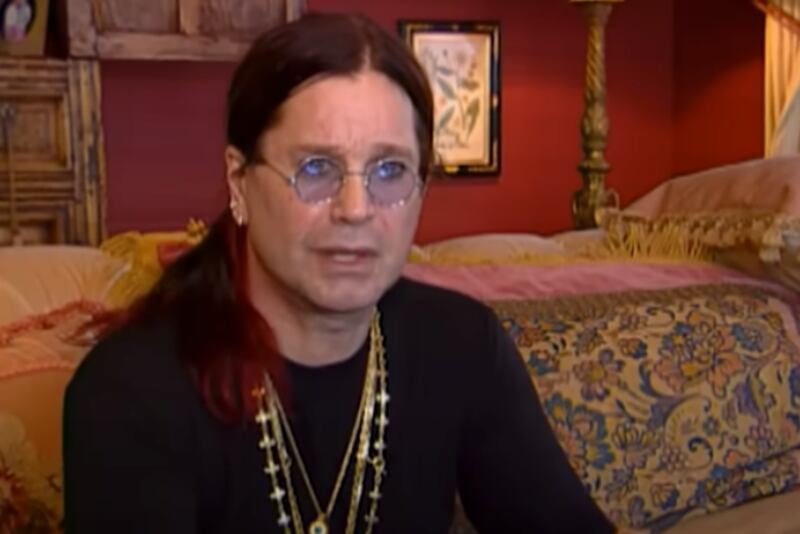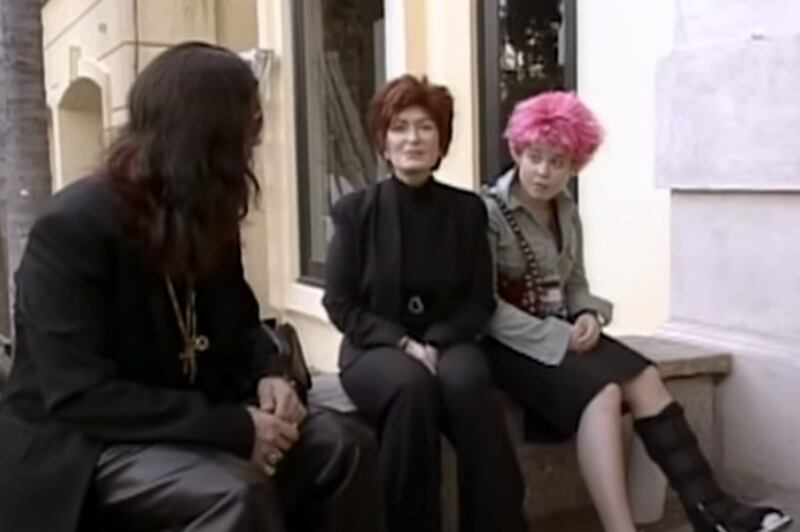It’s a relatable problem: not understanding your dad.
Yet there was Ozzy Osbourne on The Osbournes, the dad who was literally unintelligible.
TV history is rife with generation-defining families. You can chart the evolution of our society by the ones who were popular during different eras, from the Cleavers to the Bunkers to the Cosbys to the Tanners to the Dunphys. And you can crystalize a cultural shift at the exact moment that The Osbournes hit TV screens in 2002.
Ozzy Osbourne died Tuesday at the age of 76. His legacy is impressively varied. He’s the guy who basically invented heavy metal as we know it. He instigated decades of lore because he’s the rocker who “bit the head off the bat.” And, for a finite moment for a specific age-range of the millennial and Gen X generation, he’s the guy who mumbled and said “f---” a lot on MTV.

There are different milestones on the timeline of “the invention of reality TV.” Sure, there are certain shows that may be the “first,” like An American Family and The Real World. But there are also series that debut after that have been instrumental in pivoting the genre to what we know it as today, where reality shows and its stars circle us like vultures—or, I guess, bats.
The Osbournes, and specifically Ozzy Osbourne’s role in it, is why reality TV is as we know it to be today.
Four full years before the phrase “Real Housewives” was ever uttered on Bravo, there was The Osbournes.
The series premiered on MTV in 2002 and ran for four seasons, chronicling the lives of Ozzy, his wife Sharon, and their children Kelly and Jack as they bickered and joked and fought and dreamed and fought even more—this time with extra expletives—through their lives together in Los Angeles.

It was what was to become the secret sauce of any reality series: so wildly unrelatable, and yet so recognizable.
This family was privileged. Their house was amazing. Things Kelly and Jack complained about often had to do with access to insane amounts of money, or travel opportunities some of us wouldn’t dare to dream of. The father was a major rock star who existed in a state of utter silliness and, when he would speak, would only be understandable when he was using a four-letter-word, of the kind most dads would ground their kids for using, let alone fire off themselves.
Yet they still checked every box of the modern family. Mom and dad (Ozzy and Sharon) loved each other so much that they annoyed the hell out of each other; the Y2K benchmark of true love. They encouraged their children to branch out, but also coddled them. Dogs were pooping everywhere.

They also realized that the best way to raise their family was to throw the Puritanical nuclear family playbook out the window and literally say “f--- it.”
On camera at least, they trailblazed the idea that parenting didn’t have to mean disguising who you really are—and sometimes who you really are is an aging rock star who curses all the time and his lifetime supporter who is just as crude.
The Osbournes arrived at a fascinating time for reality TV. The genre was eschewing the experiment of capturing the lives of so-called “regular” people and instead became hyper-focused on documenting the lives of celebrities. The idea was to show the ways in which they were “just like us,” but inherently more entertaining because they were in the public eye and had extreme personalities that audiences would be curious to see unfiltered.
This was the age that Jessica Simpson, the Lohans, Flavor Flav, and even Whitney Houston ventured into reality TV. Not every attempt at the celebrity-reality hybrid genre worked, but The Osbournes was a hit. Not just a fan-favorite, but with critics as well, who caught on fast that what they were watching was something more anthropological than it was fame-whore masturbatory.

Looking back, especially in the wake of his death and all the remembrances that have been pouring about him, it’s clear that so much of that success had to do with Ozzy.
Most celebrities, especially the ones who agree to be reality TV specimens in addition to the usual chore of fame, are in the business of curating. Ozzy was in the business of not caring.
That’s not derogatory. That is admirable. There was a sense that he was dragged on to The Osbournes in order to appease the rest of his family who wanted reality TV fame, so it’s hilarious that he was, obviously, its breakout star.
He, more than perhaps anyone who has appeared on a reality show before or after, was incapable of being anything but himself. It helped that he was a character—the unintelligible muttering and incessant cursing took a turn from concerning to positively endearing. And whether or not you could understand what he was saying, the message was always clear: He loved his family dearly and, even when blowing a gasket at the episode’s random nonsense, wanted to make their lives as easy as possible.
There’s no closed captioning or translation needed for that message to land. The fact that it’s the Black Sabbath guy who was behind it is the whole point of the reality genre in the first place: making you realize that you can’t pre-judge a person based on first impressions, and when you get to know someone on a real, intimate level, they will always surprise you.

You can trace almost everything that is a hallmark of current reality television back to The Osbournes.
They did the shock-and-awe first. They pivoted their platform for opportunity first: Remember when Kelly Osbourne had a musical career? Or the fact that she and Sharon spent two decades as in-demand hosts, judges, commentators, and TV mainstays? They did the “is this ethical” existential crisis first; Ozzy’s other children’s refusal to participate in the show was its own scandal that made audiences wonder whether these kinds of series were responsible.
It also was a series that ushered reality TV into what we know it as today: a fun-house mirror to all of our lives. Maybe your or my dad was not a Black Sabbath rocker named Ozzy Osbourne. But so much of what we saw in the show reflected back at us a relationship and life that seemed, for lack of a better word, real.






